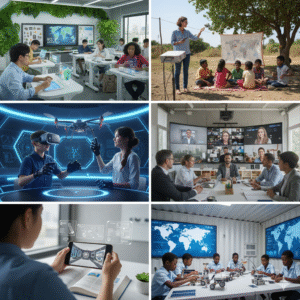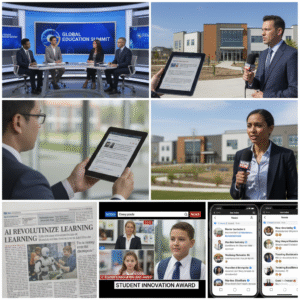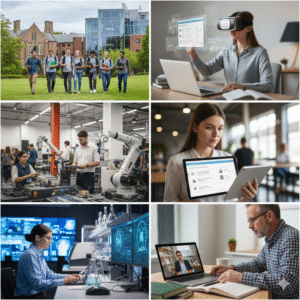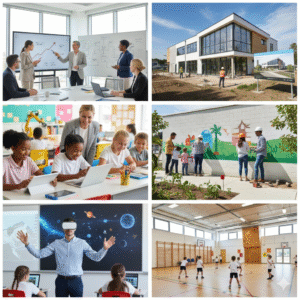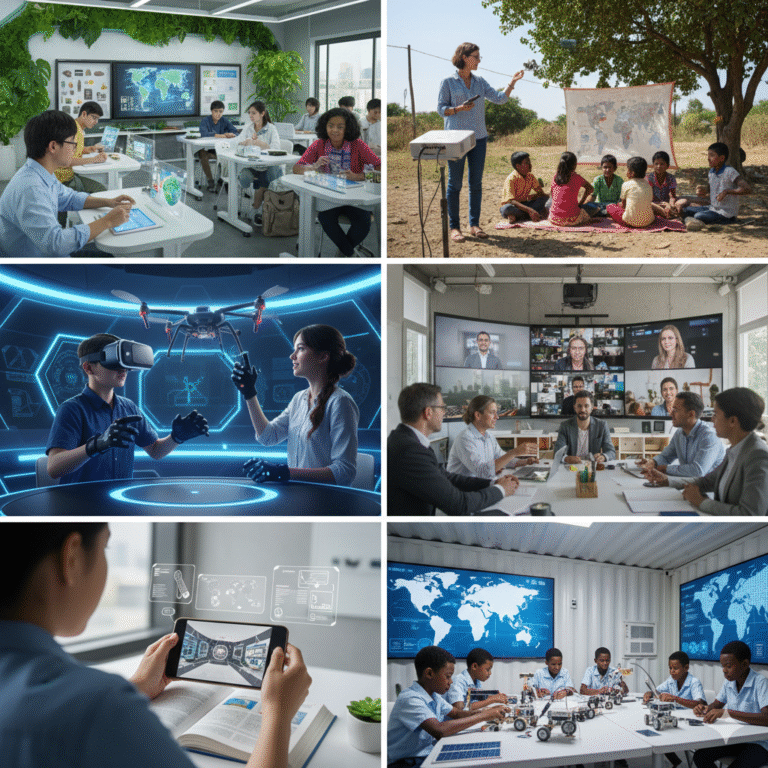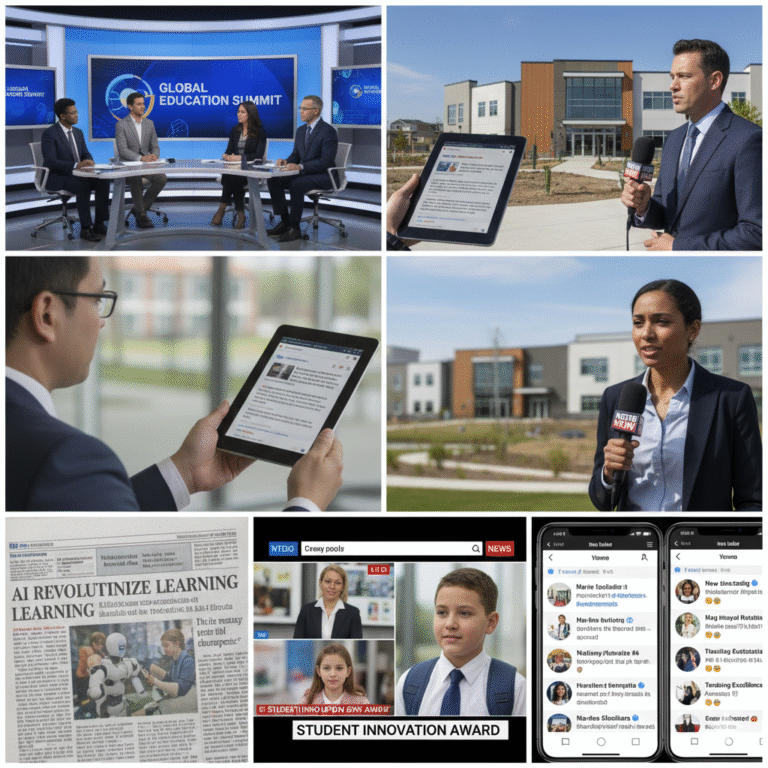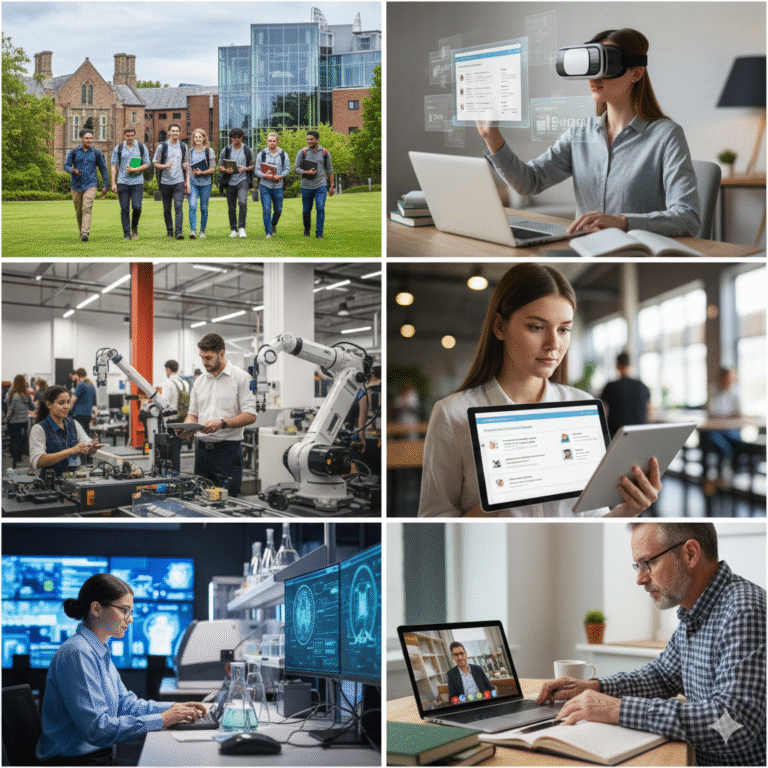
The education landscape is poised for significant transformation over the next two decades, driven by technological advancements, societal shifts, and evolving pedagogical approaches. This glimpse into the future envisions a dynamic and interconnected educational ecosystem that adapts to the needs of learners and prepares them for the challenges of the 21st century.

1. Individual Learning:
The one-size-fits-all model of education is gradually giving way to personalized
learning experiences. Advanced technologies, such as artificial intelligence and machine learning, will enable the customization of educational content and delivery based on individual learning styles, preferences, and progress. This shift will empower students to learn independently, fostering a deeper understanding of subjects.
2. Technology Integration:
Classrooms of the future will be highly digitized, with immersive technologies like virtual reality (VR) and augmented reality (AR) creating interactive and engaging
learning environments. These technologies will transport students to historical events, distant planets, or microscopic worlds, enhancing their understanding of complex concepts and making learning more enjoyable.
3. Lifelong Learning and Continuous Upskilling:
The rapid pace of technological change will necessitate a shift towards lifelong learning. Education will extend beyond traditional boundaries, with individuals engaging in continuous upskilling and reskilling throughout their lives to stay relevant in a rapidly evolving job market. Online platforms and micro-credentialing will be crucial in this ongoing learning process.
4. Global Collaboration:
The interconnected world will drive an emphasis on global collaboration in education. Students will engage in cross-cultural projects, breaking geographical barriers and fostering a deeper understanding of diverse perspectives. Virtual classrooms will connect learners worldwide, promoting cultural exchange and preparing students for a globalized workforce.
5.Interdisciplinary Approaches:
The traditional silos of subjects will blur as interdisciplinary approaches become more prevalent. Education will focus on developing critical thinking, problem-solving, and creativity, with students exploring connections between different fields of knowledge. This approach will better prepare individuals for the complex challenges of the future.
6. Educator Role Transformation:
Educators will transition from traditional lecturers to facilitators and mentors. The emphasis will shift from information dissemination to guiding students in acquiring
essential skills such as critical thinking, adaptability, and collaboration. Teachers will leverage technology to provide personalized support and feedback, tailoring their approach to the unique needs of each learner.
7. Emphasis on Soft Skills:
As automation and artificial intelligence take over routine tasks, the importance of soft skills such as communication, emotional intelligence, and adaptability will rise. Educational curricula will prioritize the development of these skills, preparing students f or roles that require creativity, empathy, and effective interpersonal communication.
8. Assessment Evolution:
Assessment methods will move beyond traditional exams to more holistic and dynamic approaches. Continuous evaluation through projects, presentations, and real-world applications will provide a more accurate measure of students’ abilities. Technology will play a role in developing sophisticated assessment tools that gauge knowledge, problem-solving, and critical-thinking skills.
9. Accessible Education for All:
Advancements in technology will contribute to greater accessibility in education. Online learning platforms, open educational resources, and mobile learning apps will enable individuals from diverse backgrounds and geographic locations to access quality education. This democratization of education will reduce disparities and provide opportunities for lifelong learning to a global audience.
10. Ethical Considerations and Digital Literacy:
With the increasing reliance on technology, there will be a heightened focus on digital literacy and ethical considerations. Educational programs will incorporate lessons on responsible technology use, cybersecurity, and critical evaluation of digital information. Students will be equipped with the skills to navigate the digital landscape responsibly and ethically.
Conclusion: ,
The next two decades will witness a profound transformation in education, characterized by personalization, technology integration, global collaboration, and a shift towards lifelong learning. These changes aim to equip learners with the skills and knowledge necessary to navigate an increasingly complex and interconnected world. As education evolves, it will play a pivotal role in shaping a society that is adaptable, innovative, and capable of meeting future challenges

